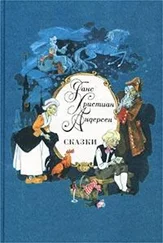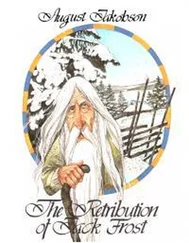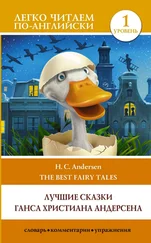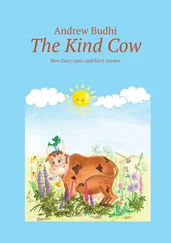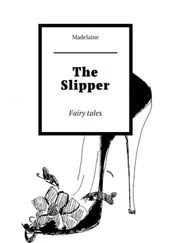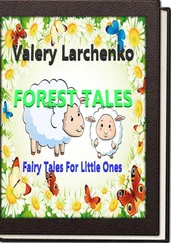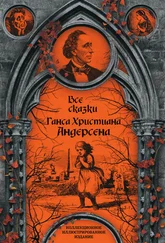Ганс Андерсен - Fairy Tales
Здесь есть возможность читать онлайн «Ганс Андерсен - Fairy Tales» весь текст электронной книги совершенно бесплатно (целиком полную версию без сокращений). В некоторых случаях можно слушать аудио, скачать через торрент в формате fb2 и присутствует краткое содержание. Жанр: Старинная литература, на английском языке. Описание произведения, (предисловие) а так же отзывы посетителей доступны на портале библиотеки ЛибКат.
- Название:Fairy Tales
- Автор:
- Жанр:
- Год:неизвестен
- ISBN:нет данных
- Рейтинг книги:4 / 5. Голосов: 1
-
Избранное:Добавить в избранное
- Отзывы:
-
Ваша оценка:
- 80
- 1
- 2
- 3
- 4
- 5
Fairy Tales: краткое содержание, описание и аннотация
Предлагаем к чтению аннотацию, описание, краткое содержание или предисловие (зависит от того, что написал сам автор книги «Fairy Tales»). Если вы не нашли необходимую информацию о книге — напишите в комментариях, мы постараемся отыскать её.
Fairy Tales — читать онлайн бесплатно полную книгу (весь текст) целиком
Ниже представлен текст книги, разбитый по страницам. Система сохранения места последней прочитанной страницы, позволяет с удобством читать онлайн бесплатно книгу «Fairy Tales», без необходимости каждый раз заново искать на чём Вы остановились. Поставьте закладку, и сможете в любой момент перейти на страницу, на которой закончили чтение.
Интервал:
Закладка:
“Everything in its proper place,” said the peddler when he was well away from “Sodom and Gomorra,” as he called it. “The open road is my proper place. I was really out of place up there.” The little goose girl nodded to him from the fence.
And days went by and weeks passed, and it turned out that the broken willow branch that the peddler had stuck down in the moat stayed fresh and green. It even put out new shoots. The little goose girl realized that it must have taken root, and she was very happy about it. It seemed to her that it was her tree.
Well, the tree thrived, but nothing else on the estate did, with the guzzling and the gambling that went on. Those are two stilts that aren’t easy to stand on.
It wasn’t even six years before the lord of the manor wandered away from the estate with a sack and a staff as a poor man. The manor was bought by a rich peddler, the very same man who had been the object of ridicule and offered beer in a stocking. But honesty and hard work bring prosperity, and now the peddler was lord of the manor. From that day forward, no card playing was allowed there. “Cards are poor reading,” he said. “And that’s because, when the devil first saw the Bible, he wanted to make one like it, and he invented card playing.”
The new master took a wife, and who do you think it was? It was the little goose girl, who had always been good-natured, gentle, and kind. And in her new clothes she was so fine and beautiful as if she had been born an aristocratic lady. How did all this happen? Well, it’s too long a story for our busy times, but it happened, and the most important part comes later.
Now there was happiness and prosperity on the old estate. Mother was in charge of the house, and father the farm. Blessings poured down upon them, and money makes money. The old buildings were renovated and painted. The moats were cleaned out, and fruit trees were planted. Everything looked so pleasant and nice. The living room floor was as shiny as a bread board. In the winter evenings the mistress sat with her maids in the big hall spinning wool and linen. Every Sunday evening the Bible was read aloud, and that by the councilman himself. Yes, the peddler became a councilman—but not until he was quite old. The children grew—there were children—and they were all well educated, but they didn’t have equal brains of course, just as in every family.
And the willow branch out there had become a fine, large tree that stood free and untrimmed. “That’s our family tree,” the old folks said, and they told their children, even the less bright ones, that the tree was to be respected and honored.
And a hundred years went by.
Now it was our own time. The lake had become a bog, and it was as if the old manor house had been erased. There was an oblong puddle of water with some stone circles on the side. Those were the remains of the deep moat, and there was still a grand old tree standing there with stooped branches. It was the family tree. It showed how beautiful a weeping willow can be when it is allowed to get along on its own. True, the trunk had split, right from the root up to the crown. Storms had twisted it a little, but it was standing, and grass and flowers were growing from all the cracks and crevices where wind and weather had deposited humus. It was like an entire little hanging garden with raspberries and chickweed, especially at the top, where the big branches divided. Even a tiny little rowan-berry tree had rooted there and stood so slender and delicate right up in the middle of the old willow tree. The tree was mirrored in the black water when the wind drove the duckweed to the other corner of the pond. A little path over the meadows went right by the tree.
High on a hill by the forest, with a wonderful view, lay the new manor house, large and splendid, with windows so clear that you would think there was no glass in them. The big stairs by the door looked like they were wearing an arbor of roses and large-leafed plants. The lawn was so perfectly green that it looked as if each blade was tended both morning and night. Expensive paintings hung in the hall inside, and there were silk and velvet chairs and couches that could almost walk on their own legs. There were tables with shiny marble tops and books of fine leather with gilt edges. Rich people lived here, distinguished people—the baron and his family.
And one matched the other. “Everything in its proper place!” they also said, and because of that all the pictures that had once been the pride and joy of the old manor house were now hanging in the servants’ wing. They were real junk, especially two old portraits, one of a man in a rosy red coat and a wig, and the other of a lady with powdered hair piled high on her head and a red rose in her hand. Both were surrounded by big wreaths of willow branches. There were lots of holes in the old portraits because the baron’s little children always shot their bow and arrows at the two old folks. It was the Councilman and his wife, from whom the family descended.
“But they aren’t really part of our family,” one of the small barons said. “He was a peddler, and she was a goose girl. They weren’t like Pappa and Mamma!”
The pictures were just poor rubbish, and when “everything in its proper place” was applied, great grandfather and great grandmother ended up in the servants’ quarters.
The minister’s son was the live-in tutor on the estate. He was out walking one day with the little boys and their elder sister, who had just been confirmed. They walked on the path down towards the old willow tree, and while they walked she bundled up a bouquet of wild flowers with “everything in its proper place,” and it made a beautiful whole. At the same time she listened carefully to everything that was said, and it pleased her so much to hear the minister’s son talk about the powers of nature and of history’s great men and women. She had a good, healthy disposition, noble in soul and thought, and with a heart that could embrace all of God’s creation.
They stopped by the old weeping willow. The smallest boy wanted a willow whistle made from the tree. He had had them whittled before from other willows. The minister’s son broke off a branch.
“Oh, don’t do that!” said the young baroness, but it was too late. “That’s our famous old tree, and I’m so very fond of it! They all laugh at me about it at home, but that doesn’t matter. There’s a legend about that tree—”
And she told everything that she had heard about the tree, about the old manor, about the goose girl and the peddler who met there, and became the ancestors of the distinguished family and the young baroness herself.
“They wouldn’t accept a title, the decent old folks,” she said. “They had a saying, ‘Everything in its proper place’ and they didn’t think they would be in the proper place if they were elevated to the nobility because of their money. It was their son, my grandfather, who would become a baron. It’s said that he had great knowledge and was highly regarded and thought of by princes and princesses, always invited to their parties. Everyone else in the family thinks the most of him, but—I I don’t really know why—there’s something about the old couple that draws my heart to them. It must have been so pleasant and patriarchal in those times in the manor, when the mistress sat spinning with all her maids, and the old gentleman read aloud from the Bible.”
“They were pious, sensible people,” said the minister’s son, and then they started talking about nobility and the middle class, and it was almost as if the minister’s son didn’t belong to the middle class, the way he talked about the nobility.
“It’s a good thing to belong to a family that has distinguished itself—to have an incentive in your blood, in a way, to continue doing good things! It’s wonderful to bear a family name that opens all doors to you. Nobility means noble. It’s the gold coin that has been stamped with what it’s truly worth. It’s a fashion of our times, and many poets share the view, that everything that is aristocratic is false and foolish, and that the lower in society you go, the more true nobility shines. But that’s not my opinion. I think that’s wrong, completely wrong. You can find many moving noble incidents in the upper classes. My mother told me one, and I could give others. She was visiting at a distinguished family in town. I think my grandmother had nursed the noble mistress. My mother was standing in the living room with the aristocratic old husband when he saw an old woman coming along the courtyard on crutches. She came every Sunday and was given a few shillings. ‘There’s the poor old thing,’ the man said. ‘It’s so hard for her to walk.’ And before my mother knew it, he was out the door and down the steps. The seventy-year-old Excellency went down to the old woman himself to save her the arduous trip up the steps for the money she came for. Of course, that’s just one poor little example, but just like the ‘widow’s mite’ it comes from the heart, from human decency. Poets should be pointing out, especially now in our time, things which inspire good, things that mitigate and reconcile. But when a human being throws his weight around in the street just because he has noble blood and a family tree like an Arabian horse, or says, ‘It smells like the street in here’ when a common person has been in the room, then nobility has rotted, become a mask as in Thespis, 1and then we laugh at such a person and satirize them.”
Читать дальшеИнтервал:
Закладка:
Похожие книги на «Fairy Tales»
Представляем Вашему вниманию похожие книги на «Fairy Tales» списком для выбора. Мы отобрали схожую по названию и смыслу литературу в надежде предоставить читателям больше вариантов отыскать новые, интересные, ещё непрочитанные произведения.
Обсуждение, отзывы о книге «Fairy Tales» и просто собственные мнения читателей. Оставьте ваши комментарии, напишите, что Вы думаете о произведении, его смысле или главных героях. Укажите что конкретно понравилось, а что нет, и почему Вы так считаете.

![Ганс Андерсен - Ганс Чурбан[другой перевод]](/books/95480/gans-andersen-gans-churban-drugoj-perevod-thumb.webp)
